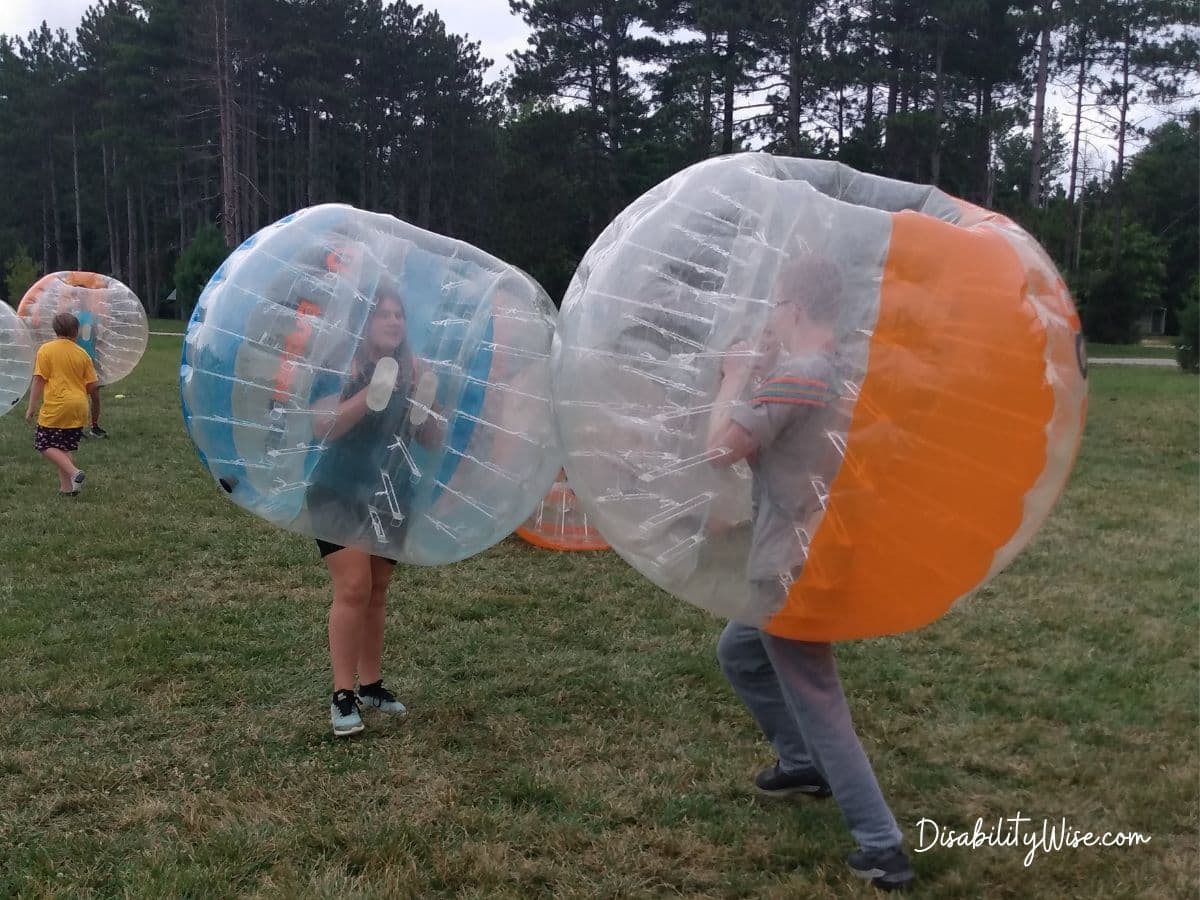Summer’s in full swing! It’s that time of year when we take a break from some of our daily routines and enjoy pool days, road trips, outdoor adventures, and make lots of memories.
So, how do you make sure your kiddo doesn’t also take a break from building essential skills during their summer break? Finding that sweet spot between learning and lounging can be tricky.
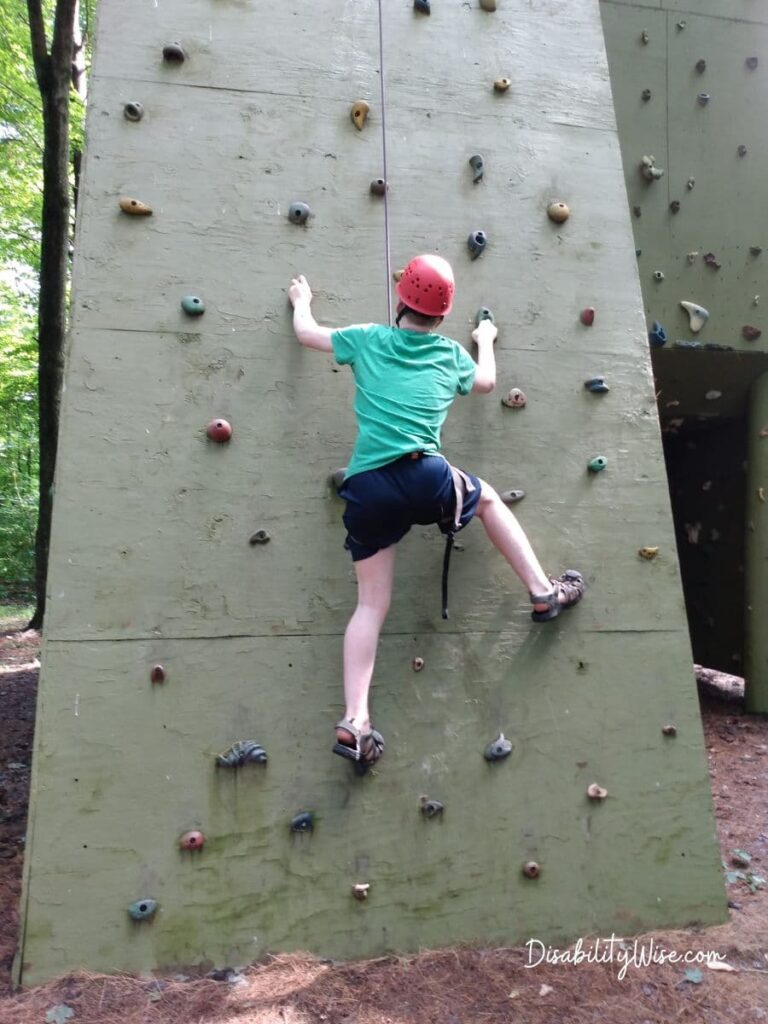
Put It On the Calendar
Setting a special “skills time” in our schedule seems to help keep it from getting lost in the shuffle of summer busyness.
Before summer begins, I block off some time on my calendar to focus on developing skills that work with our upcoming summer plans. Then, I decide on a time (usually earlier works best so we’re still fresh), and stick to it!
Of course, life happens. Things come up. We miss a day here or there, but I don’t stress out. There is always another day, right?
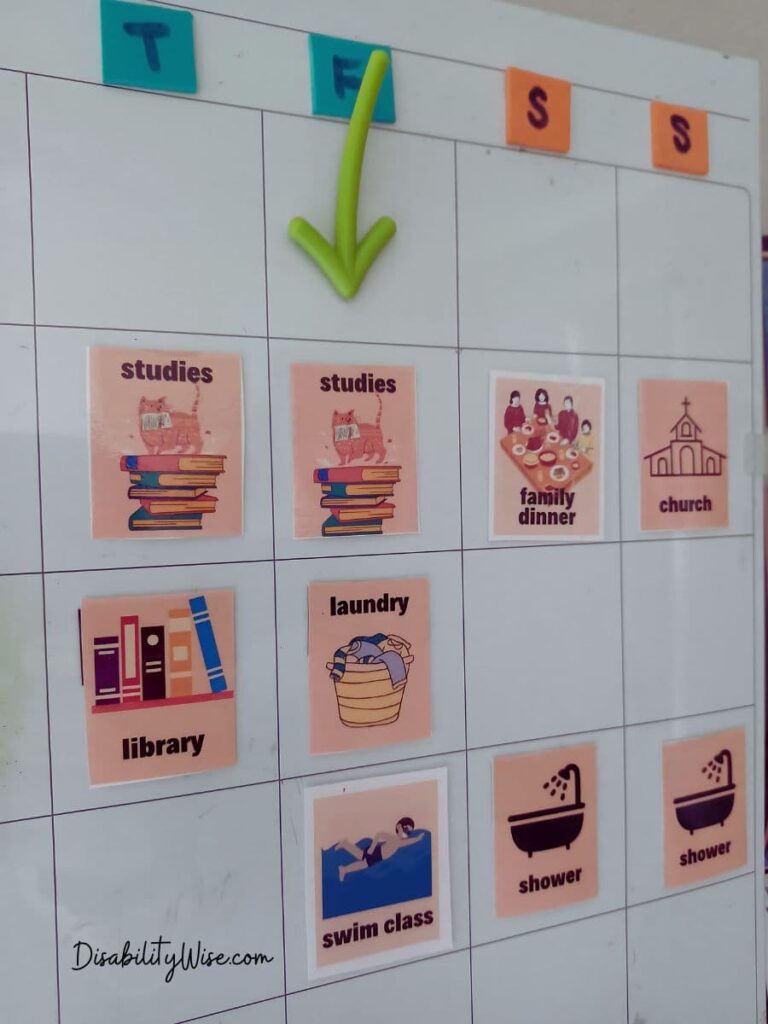
My son also has a calendar in his room – a whiteboard that’s like his weekly roadmap. For Ian, I’ve discovered less is more, so I keep the schedule simple and only add a few days and items at a time. It’s not perfect, but it’s helpful for him to have a visual reminder.
TIP: I create all my images for Ian’s calendar on Canva. I love Canva. Since Ian is a non-reader, the graphic design platform gives me access to thousands of pictures to add to his schedule. I have the paid Pro version, but the free version has tons to offer, too. After creating the images, I print, laminate, and add magnets to the back. It’s that easy!
Now, let’s get to those creative tips on how to sneak skill-building into your kiddo’s summer schedule that they won’t even realize are there. 😉
1. The World is a Classroom
Who said learning has to be all books? If your child is anything like mine, the mere mention of ‘school work’ initiates a sprint in the opposite direction. I’ve had to master the art of subtly working teaching moments into daily activities. I swear that kid can sniff out a teaching moment a mile away.
Cooking and Meal Prep
You probably never realized how many life skills you use while preparing dinner for your family. Cooking and meal prep provide so many chances to develop those essential skills our children need for everyday life.
Heating a meal in the microwave or baking in the oven? Time and numbers at play. Measuring out ingredients? Honing those math skills. Figuring out where their favorite foods are stored or learning to handle kitchen tools safely? You got it, building those important functional skills.
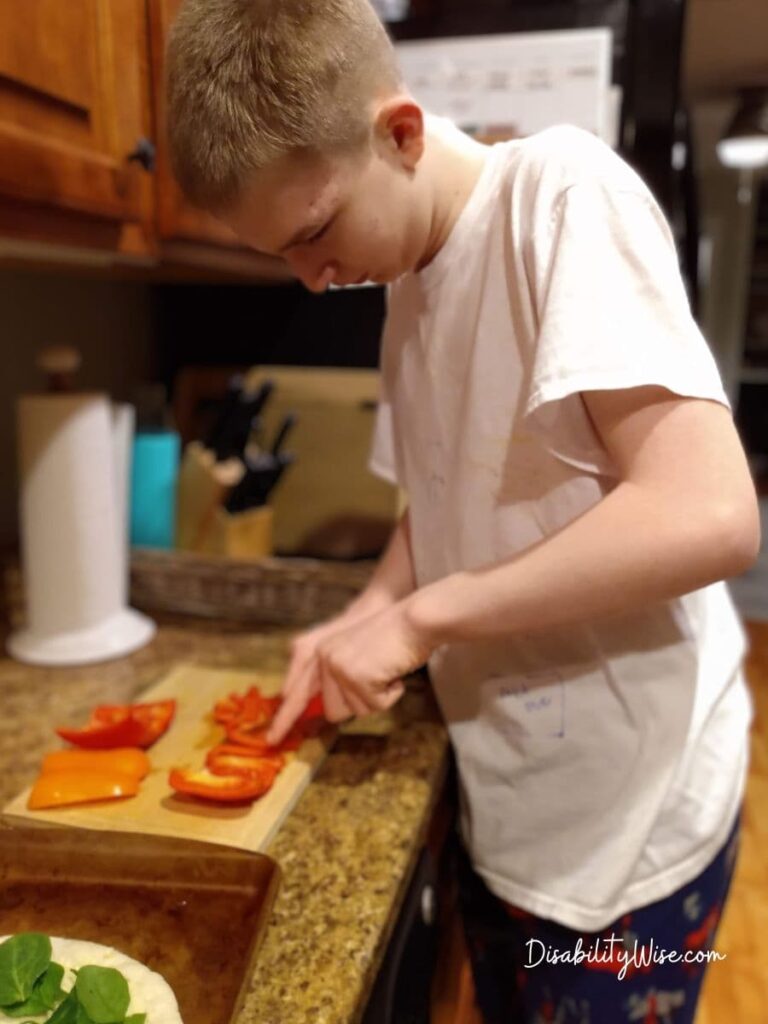
Grocery Store
Grocery runs can turn into a secret learning mission if done right. Before hitting the aisles, Ian and I create a special shopping list just for him. Since he’s a non-reader, we swap words for quick drawings. Together, we hunt down his items in the store, turning shopping into a fun treasure hunt. We opt for self-checkout since it’s perfect for practicing money skills without feeling pressured.
I’ve only scratched the surface of how the world can serve as a classroom. There are so many sneaky and stealthy ways to work in teaching moments throughout the day. What secret schemes can you cook up? 😉
2. Game Night
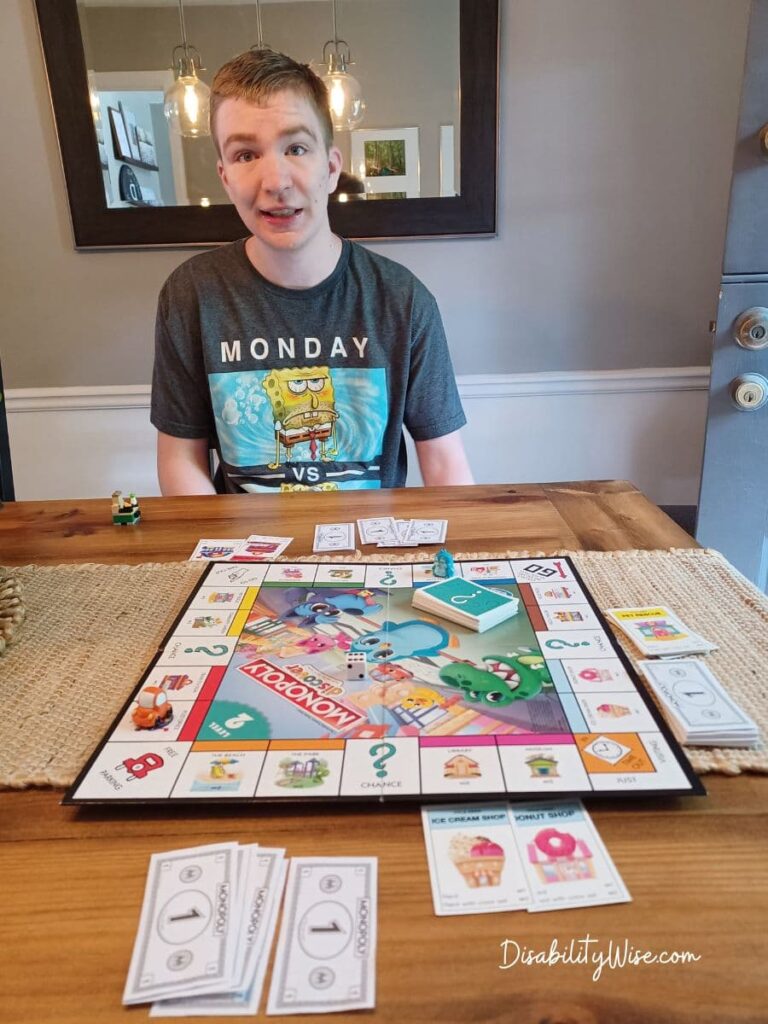
Games? Absolutely! They are more like brain-boosting fun factories! Not only do they sharpen your math and reading skills, but they’re also great for teaching turn-taking and communication. Sounds like a great reason to set aside a night each week for a game (or two), don’t you agree?
If the whole family isn’t into it, that’s okay. Just make sure to have a few games for 2 players. Taco, Cat, Goat, Cheese, Pizza, and Monopoly are some of our favorite 2-player games.
Around our house, Sunday nights have become our official ‘cookies and games’ night. There’s nothing like a sweet treat to sweeten the deal!
3. Go Exploring
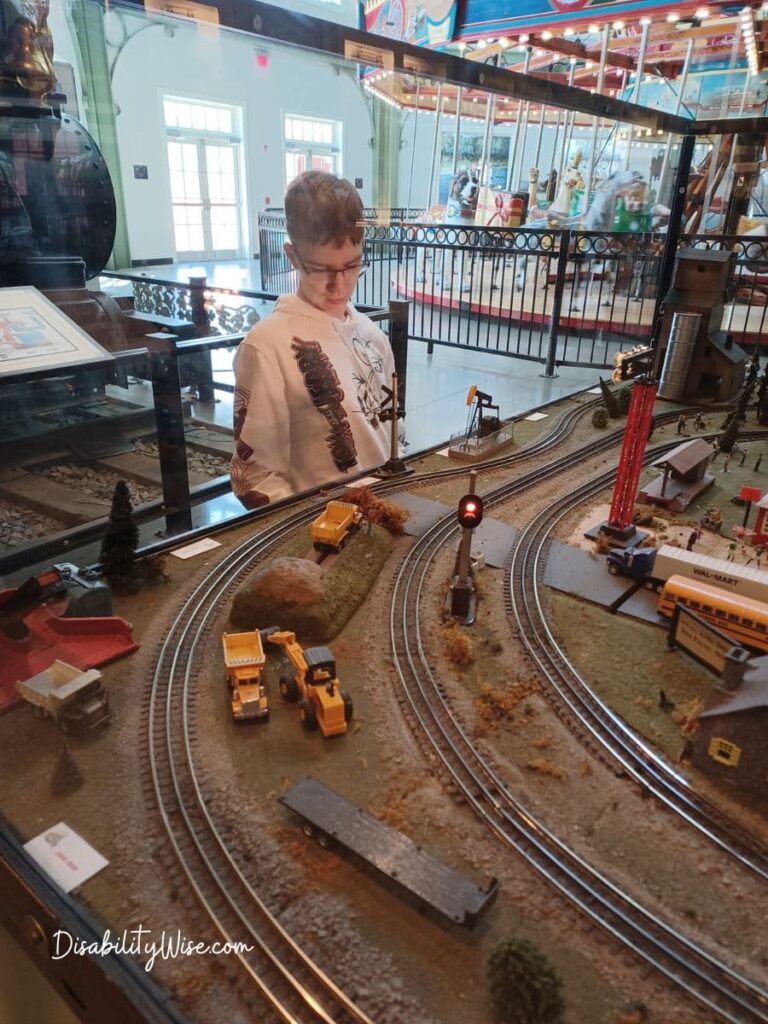
Breaking up the daily routine with a neighborhood adventure is a must for us. Ian, who has ADHD, benefits from taking occasional breaks to recharge his mind. Don’t we all!
But breaks don’t mean we have to stop learning. Visit the library or a park for a fresh learning backdrop. Check out local museums, zoos, or aquariums for more learning fun. Some places even offer tailor-made programs or quiet hours for children with disabilities.
If physical visits are impossible, use virtual tours of museums, zoos, or historical sites. Personally, my favorite is the Smithsonian virtual tour. It’s engaging and educational for all ages.
4. Get Moving
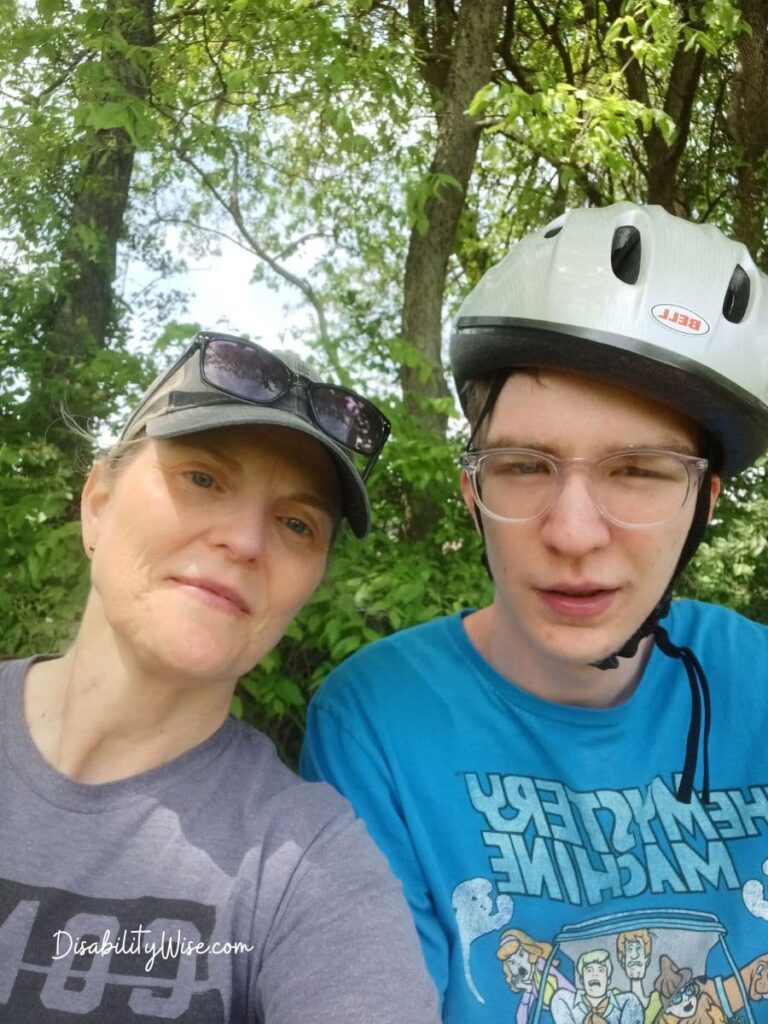
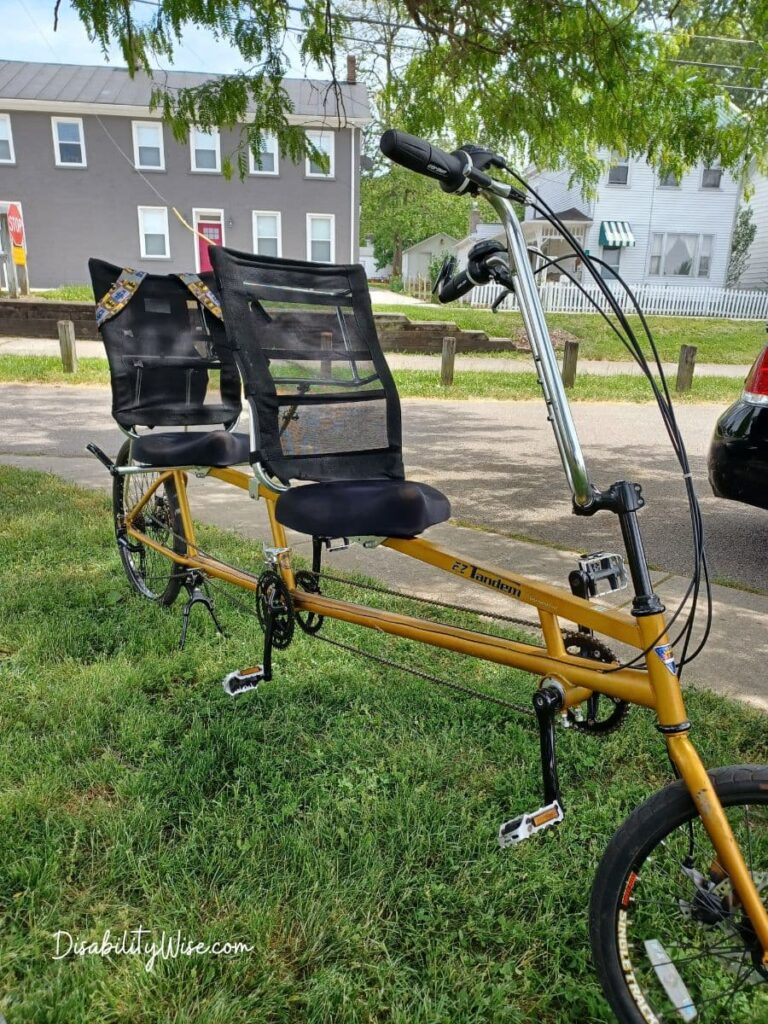
We love bicycling as a family. Luckily, we have 230+ miles of rail-trails to cycle here in Ohio. For safety reasons, Ian and I ride a recumbent tandem. It’s a beast at 9 feet long, but perfect for us. If you’re interested in cycling but tandems aren’t your thing, check out this article by AmeriDisability on other adaptive bikes available.
Participating in adaptive sports programs or therapeutic horseback riding is another way to stay active while improving motor skills and boosting confidence.
Exercise isn’t just good for the body; it’s great for the brain too. Physical activity is important for cognitive function and mood regulation. Remember to make time for it whenever possible!
5. Nurture Independence
Summer is the perfect opportunity to focus on those daily living skills that often get less attention during the school year.
Starting with this autonomy checklist can help you identify the skills that your child has already mastered and which ones may need extra attention.
6. Making Time for Imaginative Play
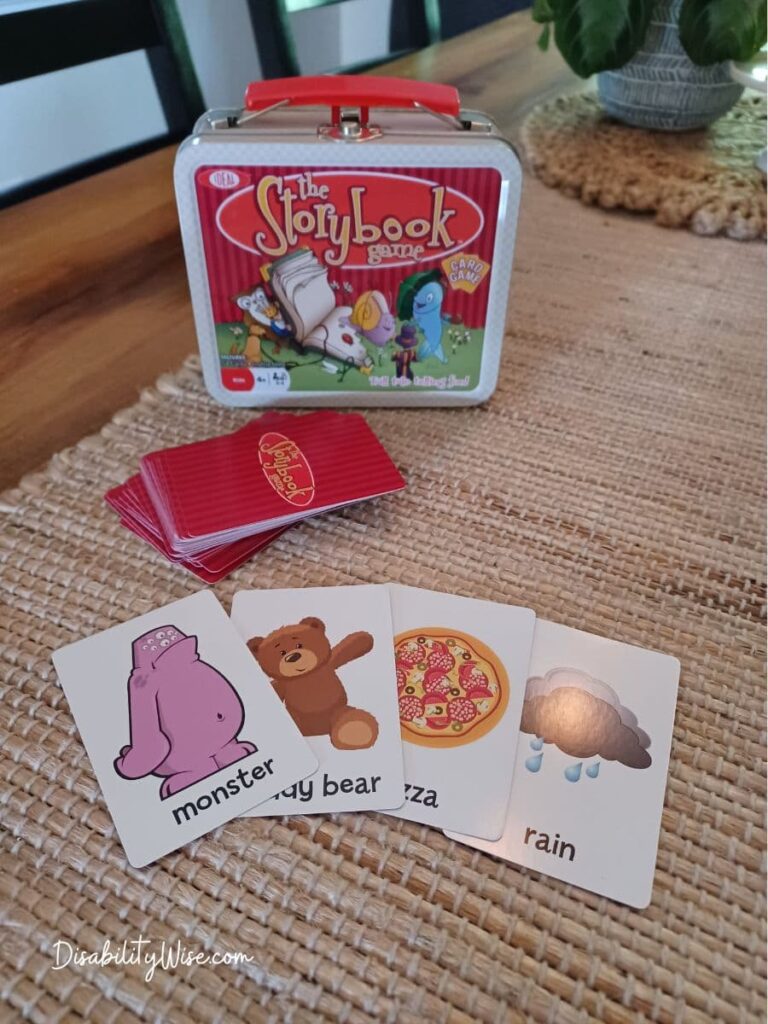
Fitting in time for storytelling and imaginative play is excellent for language development. It’s even more effective when the story aligns with the child’s interests or favorite toy!
My son loves to create stories using his Lego creations. Does your child have a favorite doll, action figure, or stuffed animal? Give your child one or two-word prompts about their favorite toy to get the story started and see where their imagination takes them.
Your child doesn’t have a favorite toy? No worries. There are card games designed to spark your child’s imagination, creativity, and communication skills through storytelling prompts. Ian and I enjoyed playing this simple card game, The Storybook Game, when he was younger. You never know what card you’ll pull next, or where the story will lead you.
7. Tech Time

I know what you’re probably thinking, “But my kids already get enough screen time in the summer.” I get it, but technology is part of their world, whether we like it or not. If it motivates them to build their skills, I say use it!
There are a ton of apps and online resources that are geared towards education and skill-building. Here are a few that we have tried and found helpful:
ABC Kids and StarFall are popular go-to apps for working on letter and number recognition. Both apps offer free and paid versions.
ChoiceWorks is an inexpensive app that’s great for working on life skills. I love that you can customize it to fit whatever task or schedule you are working on. We have had it for over a year and have been happy with it.
Epic is a great digital library for working on reading skills all year long. It’s worth noting, though, that it does have a monthly subscription.
Check with your local library if you want free access to e-books or audiobooks. We use our local library’s free digital library through Hoopla and Libby, and love them!
Final Thoughts
Remember, the key is to keep the activities enjoyable and stress-free. After all, it is summer! With a bit of creativity and planning, summer can be a time of growth and fun for your child.
I would love to hear some ways you have found to work on building or strengthening skills during the summer.
SHARE ON:


